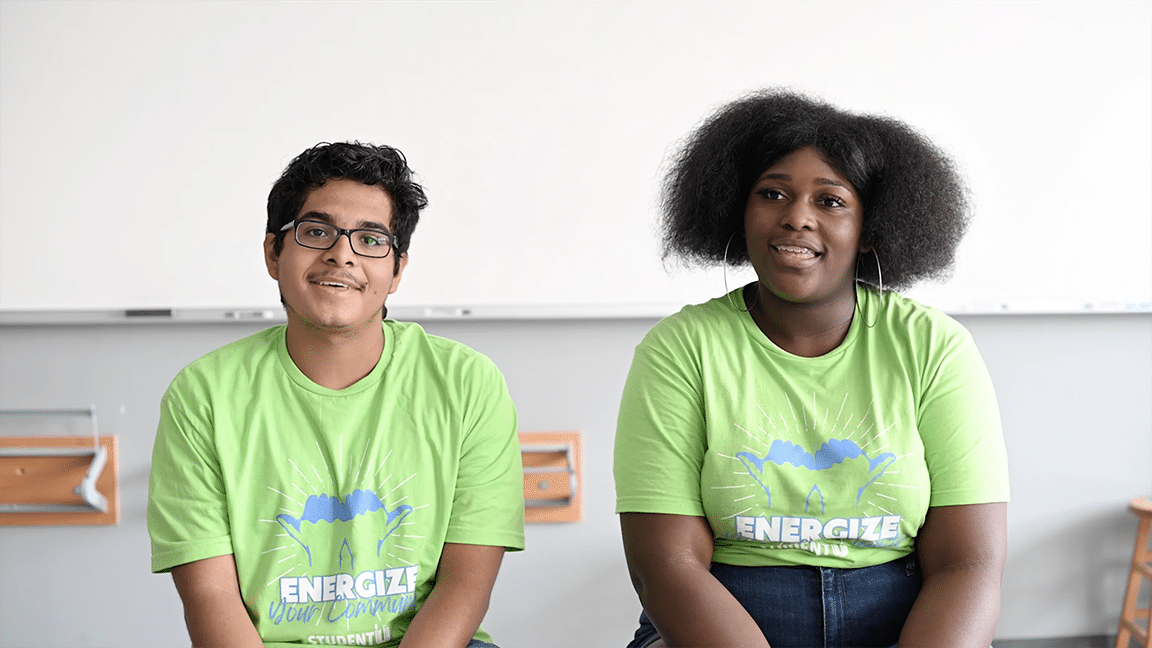Mental Health Crisis Response
By Allie Bradford Brown
Welcome to the Youth Work 101 Series! Student U started this blog series to support youth work practitioners, educators, advocates for young people, and after-school professionals in their work by sharing what has worked for us. For insights on this month’s topic, Allie Bradford Brown, Student U’s Advancement Writing Associate, interviewed Ashley Peters, Student U’s Director of Student and Family Support Services.
If you or someone you know is experiencing a mental health crisis, call 988 to reach the Suicide & Crisis Lifeline. Help is available 24/7 in English and Spanish.
Mental Health Crises Defined: Individual & Systemic
When I think of a “mental health crisis,” my mind goes to the visceral and painful experiences I’ve had helping someone very close to me weather panic attacks, intrusive thoughts, and other effects of the truly ugly side of obsessive-compulsive disorder. Maybe you have had a similar experience.
But when I asked Ashley Peters, Student U’s Director of Student and Family Support Services, to teach me about mental health crisis response, her experience and perspective brought us first to the systems-level.
“We know that right now, because of the rates of suicide, hospitalization, and data from the CDC, that we are in a mental health crisis as a society. Schools are experiencing the effects of this crisis-just look at the sheer volume and severity of mental health issues among students.”
Ashley describes potential contributors to our society’s current mental health crisis, including an uptick in violence and people feeling unsafe in schools and in their own communities; social media’s harmful effects on young people; the COVID-19 pandemic, specifically the loss of so much opportunity for development and connection (which promote healing); political issues that affect young people, such as the public fights about discussing the fullness of Black history in schools and the so-called “Don’t Say Gay” and Anti-Trans legislation; and the reality of racial stress and trauma that is weighing on people’s hearts and minds.
Disheartening statistics show that rates of suicide among Black youth have risen faster than in any other racial or ethnic group in the past two decades, with suicide rates in Black males 10-19 years-old increasing by 60%. Early adolescent Black youth are twice as likely to die by suicide as compared to their white counterparts.Chronic stress and trauma are taking a toll on our young people, and finding treatment that is affirming of youth’s intersecting identities is challenging due to high cost and limited availability. Despite the systemic nature of this crisis, our responses to individuals in crisis do matter.

Individual Mental Health Crisis Response
Knowing how to support an individual through a time of crisis can make all the difference. In her work as a Licensed Clinical Social Worker, Ashley has significant experience helping individuals navigate their own mental health crisis situations. She explains that in an individual mental health crisis, a person has a decreased ability to function due to their mental wellness and their normal coping strategies become overwhelmed and ineffective.
Ashley offered some tips for adults to spot the early warning signs in the students and youth they support:
There must be an existing relationship. Young people who interact with adults who are tuned in to their moods and circumstances are more likely to get support when they need it. The changes and warning signs might be subtle, and teenagers can be good at hiding or denying their need for help, but with a strong and supportive relationship, adults should be able to detect when something seems “off.” Developmentally, most teenagers don’t have the self-awareness to express “I think I need help because my past trauma is coming up” or “I’m feeling like things are getting out of control.” Tuned-in adults can see the signs without the teen needing to express these concerns.
Rely on peers as a first-step intervention. Young people may be more comfortable opening up to their peers than to an adult. Peers have common experiences and perspectives and, when trained and informed, they can be the ones to identify if another young person is in crisis or danger. In one example, a student in our program who was herself healing from an abusive relationship picked up on the signs of the same harm in her friend’s life based on her recollection of her own experience. In many cases, having a peer broach the topic of getting support is more powerful than hearing it from an adult.
Watch for signs of internalizing and externalizing mental health challenges.
Internalized responses include behaviors like avoiding activities one typically enjoys, rapid breathing or heart rate, isolating oneself, and irritability to name a few. These may be harder to detect, but are more likely to be correctly rooted back to a mental health crisis as the cause.
Externalized responses are responses that are outward-facing and cause more interpersonal conflict, including “acting out” or receiving more disciplinary action, violent or destructive behavior, and self-harm. These behaviors are likely to be noticed, but are not always attributed to mental health crises, especially for students of color. Addressing the behavior itself does not usually solve the problem.
Student U’s Approach to Mental Health Crisis Response
Student U staff are trained to be humble in their interactions with students-to not make assumptions or try to be the one with all the answers, but to approach each situation with curiosity and a high level of support. Children of all ages need autonomy, and allowing space for that is empowering.
Staff are trained in a technique called “motivational interviewing,” which involves approaching behavioral changes or undesired behaviors from a lens of curiosity and non-judgmental listening. When given the opportunity, teenagers can provide insight into the reasons for certain behaviors. When the adult (such as a teacher, parent, therapist, or mentor) understands the teenager’s perspective, they jointly identify small steps toward the desired behavioral change. The key here is nonjudgmental and empathetic listening and stepping back from a place of “authority” to more of a healthy supporter who is not taking a stand for or against the youth. The adult’s role is not to praise or reprimand, but to help the young person see things more clearly for themselves. (There are exceptions to this that may require firmer action on the part of an adult, such as when a young person’s actions are making them physically unsafe.) Motivational interviewing is useful in most settings; the value comes from being more thoughtful, patient, and understanding of the root cause of the behavior in question.
Trained Student U staff also practice psychoeducation with students, or helping them learn about and understand the science behind their mental health and wellbeing: What is actually going on in your brain-body connection when you experience a traumatic event or feel depressed or anxious? Understanding their own physical responses helps young people see that their body is doing what it is supposed to because it’s wired to survive, which can make stress responses less troubling or confusing.
Systemic Mental Health Crisis Response
At Student U, fulfilling our mission to “empower and equip first-generation college students in Durham… to become the leaders that will transform our city” depends upon promoting health and well-being among these future leaders. With this in mind, we not only support individuals in mental health crises, but train them to be the leaders in wellness spaces. We equip students with the language and skills they need to be the eyes and ears of their classrooms and peer groups, making sure their friends have support when they need it. Rather than siloing wellness into one class or department, we infuse it into all that we do and normalize these tricky conversations intergenerationally and across programming. From our parent mental health workshops to our student Mental Health Youth Leaders program, we are disseminating the information and agency that individuals need to change the systems that perpetuate poor mental health.
We have always emphasized relationships here at Student U. Because we have our students with us for 11 years and get families involved too, our students always have someone in their corner who prioritizes their well-being. Our students have allies in all generations and are motivated to be good role models and allies for their younger siblings and friends. Ashley’s experience and training have shown that intergenerational connection is really valuable for resiliency, and at Student U, our students’ success and resilience are a testament to the relationships and connections we foster here at Student U.
___
Resource: Further Reading on Mental Health Crisis Response
Donate to Student U and keep posts like this one coming.










